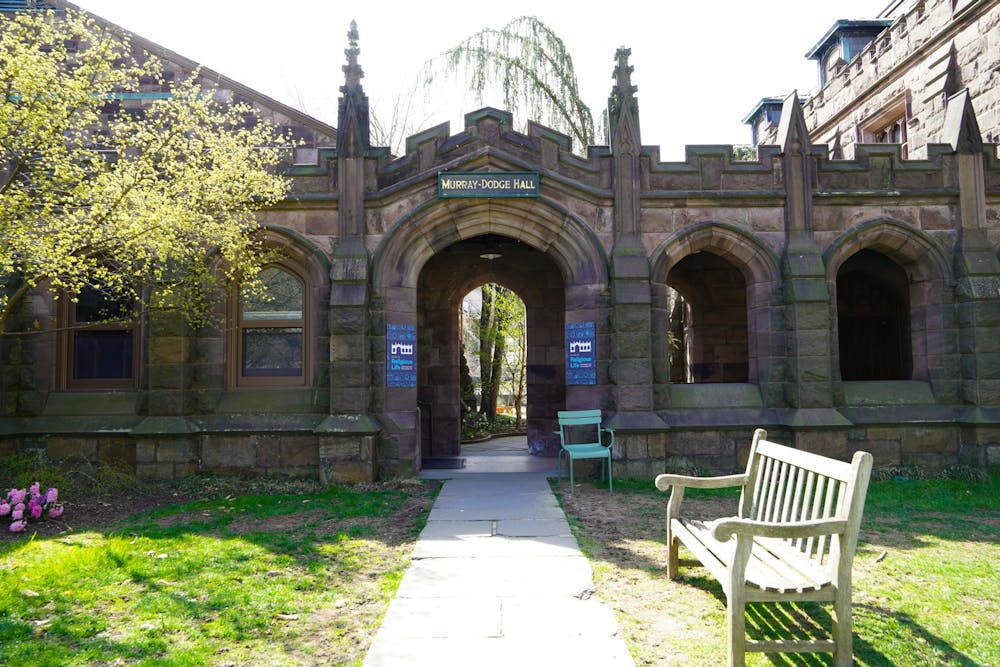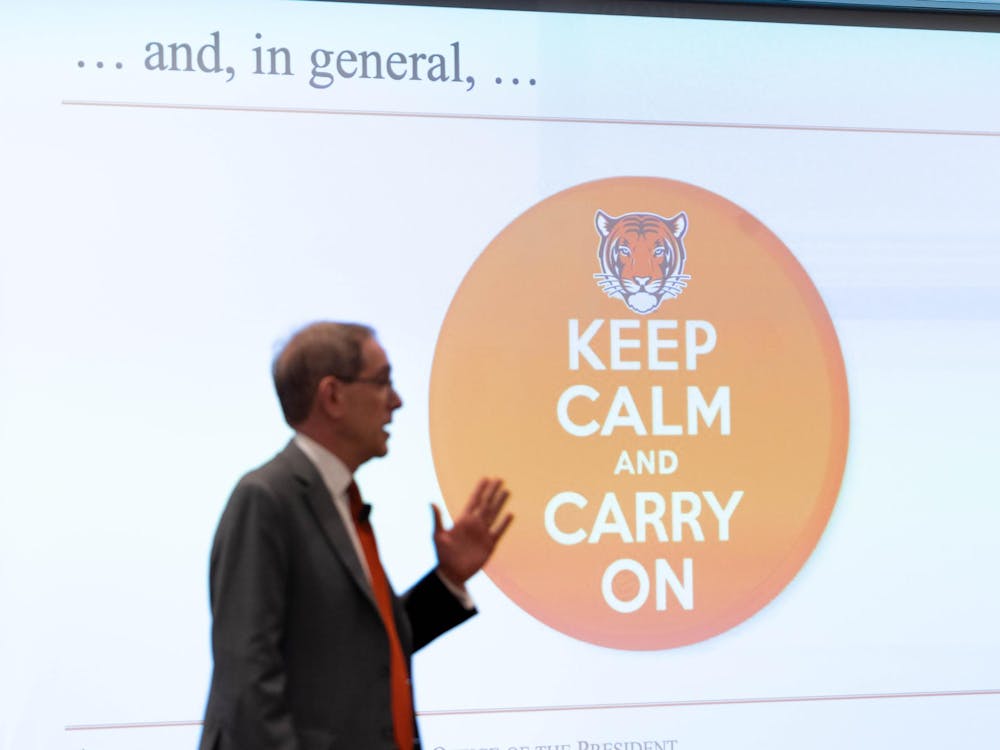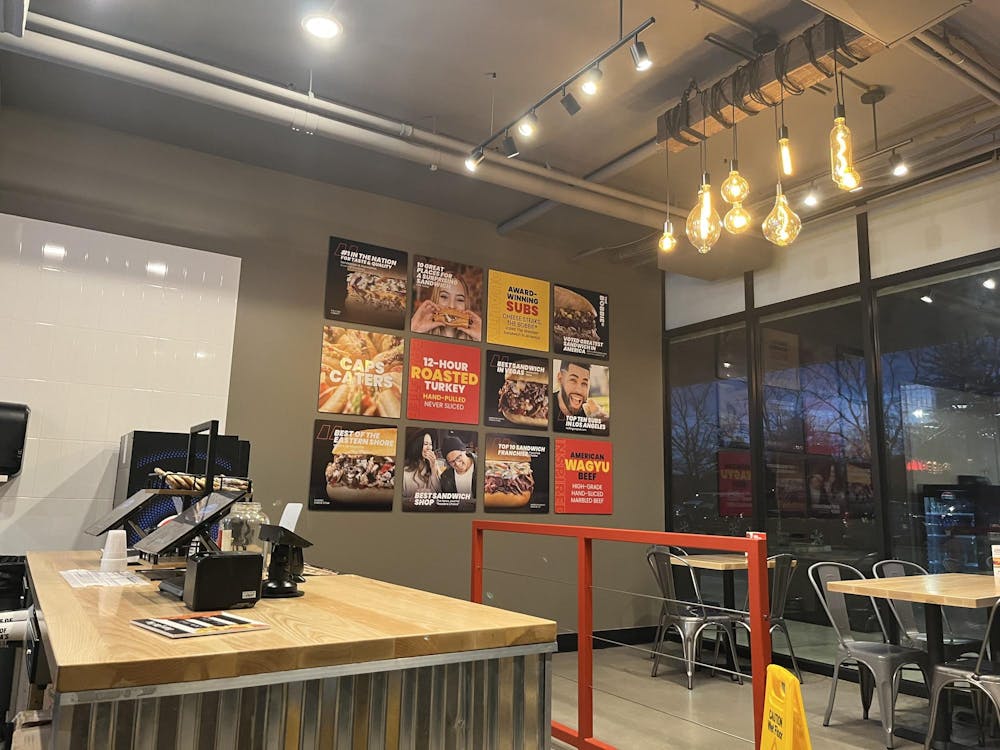This past April was a month of festivities across campus with three major Abrahamic holidays briefly overlapping from April 5 to April 9. Muslim students celebrated their Ramadan fasts together in Murray-Dodge with large iftar meals. The Center for Jewish Life (CJL) hosted multiple Passover seders, where students enjoyed matzah (unleavened bread) and sang late into the night. As Lent came to a close, Christian groups on campus celebrated Easter with services, feasts, and Easter egg hunts scattered across campus.
Students balance academic and college life with their religious observations all year, which often intensify during holidays. The University offers support and resources like alternative dining options for those who fast or academic accommodations.
The Daily Princetonian spoke with observing students and religious leaders on campus, who reflected on their religious experiences and shared how they find balance during this busy holiday season.
Observing Lent in community
Over the course of the last week of Lent leading up to Easter, many Christian students attended daily prayer services. One such service, called Tenebrae, begins with 12 lit candles. As the service proceeds, a candle is blown out after each psalm is recited in unison, until only one candle remains. Then, a loud sound, from a chord played on the organ or a dropped book, rings out. Called the “great noise,” it symbolizes the moment Jesus died on the cross. The final candle is hidden from view until the end of the service, when it is brought back for concluding prayers.
A few days later, the Easter vigil begins in darkness. Students gathered at 5 a.m., lit small candles together, and processed into the chapel, where they listened to readings from the Bible as the sun rose. Only once the sun had fully risen could they officially celebrate Easter, blowing out the candles, singing hymns, and saying “Hallelujah” after not having been able to use that word over Lent.
Anna Ferris ’26, an Episcopal Church of Princeton (ECP) member who attends weekly services at the Chapel, shared her experiences of Lent and Easter. “It was so amazing watching the light start to pour in and symbolically bring us the light of Christ’s resurrection,” said Ferris.
Ferris is a contributing columnist for the ‘Prince.’
Ferris had a positive experience observing Lent on campus. “Catholics, Anglicans, and some other denominations of Christianity don’t eat meat on Fridays, and the dining halls are great. They always have meatless options,” noted Ferris.
Though Ferris had not been attending church consistently before Princeton, she explained, “When I came to Princeton, it was just something I wanted to try out. And I found it fit in seamlessly on Sunday nights.”
Ferris has found that smaller fellowships and prayer groups bolster her religious observance at Princeton. “It doesn’t have to feel like the biggest commitment you’re going to make in your day to be really important and impactful,” said Ferris.
Laura Robertson ’24 was once more involved in Christian communities on campus, but now expresses most of her religiosity through the Religious Life Council (RLC) within the Office of Religious Life (ORL). “I think the RLC is really valuable,” she said.

Robertson is an associate Audience editor for the ‘Prince.’
Robertson also values the flexibility of religious expression. “People can be religiously observant in many different ways,” she said.
Though Robertson has become less observant over the course of her time at Princeton, she still fasts on Ash Wednesday and receives ash on her forehead. “Lent is a very special time of year for me,” Robertson said.
Father Allen Wakabayashi is the ECP chaplain. Over the 40 days of Lent, Father Allen supported students in balancing their opportunities for religious involvement with their academic responsibilities.
“Lent is a time to refocus, repent, and deal with anything that’s distracting us from our faith,” said Father Allen. Lent culminates in a week called Holy Week, during which ECP offers daily services and extra support for students leading up to Easter.
Father Daniel Skvir ’66 helped found the Orthodox Christian Fellowship on campus when he was a student in 1964 and has served as its chaplain since 1989. Since then, he has watched the community grow and seen religious expression at Princeton transform.
The Fellowship meets throughout the year, but also has increased opportunities for involvement during Lent. “It’s a period of fasting and of confession, self-appraisal,” explained Father Daniel.
He also described the busy schedule of Holy Week, including daily services and a midnight service between Saturday and Sunday morning from 11:30 p.m. – 3 a.m. “It’s a long series of services that ends up with the blessings of Easter and the breaking of the fast,” Father Daniel added. The Orthodox Fellowship also provides students with Easter baskets and ensures that they have access to traditional foods.
Muslim students celebrate Ramadan
Ameen Omar GS prays five times a day and is on campus for three of the five daily prayers. He often goes to the prayer space for Muslim students on the third floor of Murray-Dodge, but because of his heavy class load, he often finds himself short on time, having to “catch a prayer” in between classes.
Two of his classes have Omar running between McCosh Hall and Green Hall in a ten minute time frame, so he finds a secluded area outdoors, puts down a jacket or a few napkins, and performs the prayers as he usually would. Generally, prayers include a cleansing of the feet called ablution before praying, but without access to a sink, Omar wipes over his feet with a tissue or wipe, finishes his prayers, and races to his next class.
These are the practices that, according to Omar, “make religion much more conspicuous in my day, where it’s really affecting my time, and you can physically see something. But most of the time, it’s more spiritual.”
Balancing these religious commitments with academic obligations posed particular challenges during Ramadan.
Like Christian students, some Muslim students adjust their dietary habits during their religious observance of Ramadan. Ramadan began on March 22 and ended on April 20. During this period, many fasted from sunrise to sunset and attended Taraweeh (nightly prayers) in addition to their usual five prayers a day. The Muslim community hosted iftar dinners after sunset at least twice a week.
Omar has informed professors that he may need to be late due to prayers, especially during Ramadan. He said that professors have been very accommodating.
He’s also grateful for the support of the Muslim community at Princeton. “I was expecting to come and not find a big community, but I was sorely wrong, and I’m glad about that,” he said.
Yahya Habib ’26 also prays five times a day and is very active within Princeton’s Muslim Students Association (MSA), participating in various religious circles. “You’ll see me a lot on the third floor of Murray-Dodge,” said Habib.
Habib also mentioned the challenge of fasting from sunrise until around 7 p.m. each evening, attending night prayers, and trying to stay awake and active in religious duties and spiritual commitments on top of academic obligations. “A lot of Muslim students end up feeling very tired … it’s a challenge, but you get over it in the first week, and it becomes the norm,” he said.
Habib has been turning to upperclassmen for support. “It’s great to have a community on campus and these pillars of support from the community,” he said.
As for the some of the challenges Ramadan poses, Omar noted, “Ramadan may come across as a strenuous thing, and it is, especially during the first few days, but afterwards … your body finds that balance.”
Ultimately, Habib’s Ramadan experience was an adjustment, but he was appreciative of the University’s accommodations. “I see great strides being made through the Princeton Ramadan Program and the halal food they provide through that,” Habib said.
Aisha Chebbi ’24 is the co-president of MSA. In an email to the ‘Prince,’ Chebbi described the Muslim community as a “diverse, vibrant, and joyful one.”
“Our community is growing with each class year, and it is a very exciting thing to be part of,” wrote Chebbi.
Chebbi views Ramadan as a time “of spiritual focus, community, and a renewed commitment to service.” She also mentioned the three-day celebration after Ramadan called Eid al-Fitr, the holiday of the breaking of the fast, marking the end of Ramadan.
Chebbi emphasized the importance of making Muslim students feel seen during this time. “Even wishing someone a Happy Ramadan or Happy Eid goes a very long way,” she said.
Assistant Dean for Muslim Life Imam Khalil Abdullah also shared his excitement about Ramadan, explaining, “Ramadan helps us in many ways to grow in empathy for those who have less, and grow in gratitude for what we do have.”
Since arriving at Princeton two years ago, Imam Khalil has built relationships with the administration and advocated for Muslim students. “Not only myself, but also our students have taken the lead in expressing their religious needs to the University … and show tremendous leadership,” said Imam Khalil.
Imam Khalil characterized the main challenge of Ramadan as “food more than anything,” and he has appreciated how the University meets the dietary needs of Muslim students, echoing the sentiments of many students.
Imam Khalil also noted that it can be difficult for students to decide how to spend their time on campus during Ramadan. “It all comes back to balance,” Imam Khalil advised, encouraging students to take naps and fuel themselves when possible.
Passover at the Center for Jewish Life
As Ramadan drew to a close, Jewish students observed Pesach (Passover) from April 5 to April 13. In observance of the holiday, many kept kosher for Passover by adopting more stringent rules around ‘kashrut’ (Jewish law surrounding food) and avoiding leavened products. The CJL also hosted multiple seders, ritual Passover feasts, providing students with a variety of options.
Jewish students, many of whom pray multiple times a day, reflected on aspects of Jewish life at Princeton, including Passover.
Davi Frank ’26, a member of Princeton’s Orthodox Jewish community, often prays three times a day and eats strictly kosher food.
Frank sometimes struggles with integrating Jewish studies into his daily life. “It’s complicated when it comes to balancing classes, extracurriculars, and everything else,” Frank explained. He added, “The schedule here isn’t meant for people to really live life Jewishly … which is hard because that’s a big value for me.”
For Frank, the religious transition to Princeton was not an easy one. He said, “I came from a place where religiosity was the main focus … At Princeton, it feels very isolating.” Frank also noted that as a visibly religious person who wears a ‘kippah’ (head covering) and ‘payot’ (curled sidelocks) on the sides of his head, “You just feel like you stick out. And you do.”
Theo Gross ’24, who identifies as a Conservative Jew, also follows the ‘halakha’ (Jewish law) as closely as possible, observing Shabbat each week without doing work or using electronic devices from sundown on Friday until sundown on Saturday.
Gross has become more religiously involved since coming to Princeton and emphasized the strong culture of observing Shabbat within the Jewish community. “Even people who don’t observe these holidays to the letter of the law are involved in that culture,” explained Gross.
On Passover, when these laws become a lot more stringent, Gross appreciates that the CJL meets his religious needs for the holiday. “[It makes] it much easier for students to observe Passover on campus,” he said.
In order to accomplish the conversion of its kitchen over to being kosher for Passover, the CJL dining hall used exclusively its dairy side for the week leading up to Passover. It performed a deep cleaning of its meat side in order to rid it of ‘chametz’ (leavened products). By the first day of Passover, the dining hall was stocked with new Passover foods, such as matzah and coconut macaroons, and buzzing with excitement for the holiday.
That night, the CJL hosted three seders, all of which drew throngs of both Jewish and non-Jewish students and included a copious amount of plastic frogs, representing the second plague in Exodus.
Gross also reflected that the seders tended to be “very fun, because they’re all organized by students. So it’s a very familial setting.” Additionally, Gross said that he enjoys seeing new faces at the CJL over Passover, noting the presence of “people who you don’t necessarily see year-round but who eat at the CJL during Passover for kosher food.”
In addition to dietary adjustments, many Jewish students kept the first and last two days of Passover as special observances during which doing work, using electronics, and certain other activities were prohibited. This year, these days fell on weekdays, so students needed to advocate for themselves to attain excused absences and extensions.
Gross believes that the University could be doing more to foster the observance of holidays for Jewish students, as he wrote in a ‘Prince’ article in September. Gross pointed out that there are classes on Jewish holidays during which observant Jewish students are prohibited from writing and using technology.
Gross said that on Passover, “It’s stressful … cramming in work between the first two days and the last two days of the holiday.” He added that, for students who adhere to traditions other than Christianity, “it would be a nice gesture if we could be guaranteed not to have class on those holidays.”
Executive Director of the CJL Rabbi Gil Steinlauf ’91 supports Jewish students in many aspects of their campus lives. He helped to ensure that Passover at the CJL ran smoothly.
Rabbi Gil particularly appreciates that the CJL, “is open to everyone on campus. And kashrut is automatically halal, so I always love seeing Muslim students who keep halal here, who should also think of the CJL as a place for them.”
While Rabbi Gil recognizes that some people might be confused by these religious restrictions, especially on Passover, he likes to view the holiday as a “learning opportunity for non-Jewish students on campus.” He advised non-Jewish students, “Don’t be afraid to ask!”
Now that Passover, Ramadan, and Lent have come to a close, students who observe these holidays have returned to their daily schedules on campus. Regardless of the time of year, however, religious students at Princeton will continue to share the experience of finding spaces at Princeton to pray, observe, and celebrate in community.
Raphaela Gold is a staff Features writer for the ‘Prince.’
Please direct any correction requests to corrections[at]dailyprincetonian.com.








